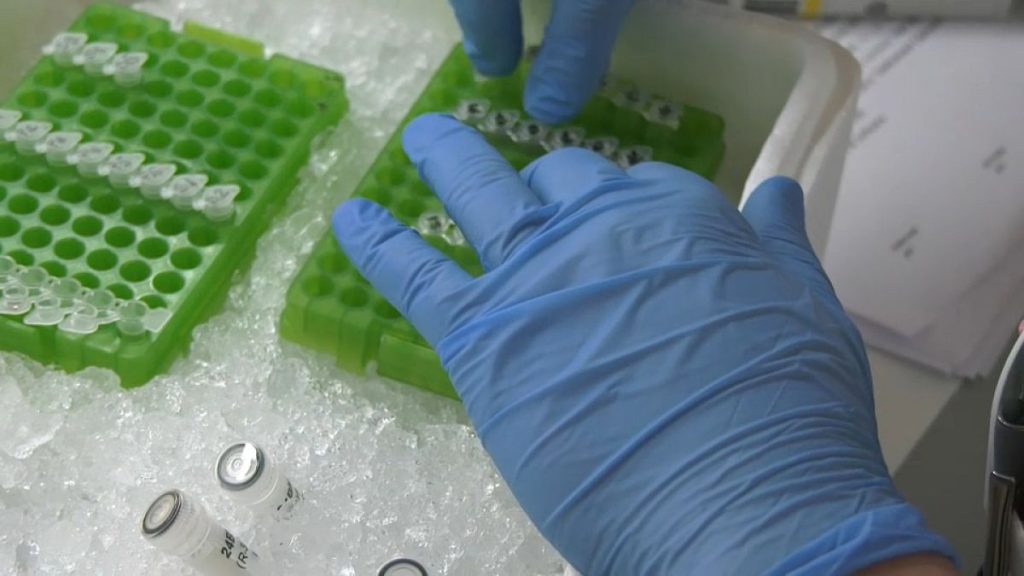A new treatment is being developed under Project ULISES, part of the EU’s Horizon programme, aimed at reducing the side effects of conventional cancer treatments like chemotherapy and radiotherapy. This treatment involves the synthesis of nanoparticles to deliver genetic material into cancer cells, making them visible to the immune system and helping it to reject the tumor. The nanoparticles are similar to those used in the Covid vaccine and have proven to be safe and efficient in transporting genetic material. By specifically targeting tumor cells, this new therapy aims to reduce side effects compared to traditional treatments, providing hope for cancer patients like Laura and Pedro.
Laura, a 33-year-old woman diagnosed with stage three breast cancer, has undergone multiple surgeries, chemotherapy, and radiotherapy, and is now on a hormone treatment. She describes the impact of cancer on her identity and how it has changed her as a person. Pedro, a 62-year-old lung cancer survivor, is still suffering from after-effects such as split nails and loss of touch sensation following his treatments. Both Laura and Pedro are supported by the local branch of the Asociación Española contra el Cancer (AECC), which helps cancer patients find financial aid, borrow prosthetic materials, and receive psychological support to cope with the physical and emotional impact of the disease.
Cristina Fillat, project coordinator for Project ULISES, explains that the main goal of the new treatment is to activate the patient’s immune system to reject the tumor by introducing specific molecules into the tumor. The nanoparticles developed for this treatment have shown promising results in targeting tumor cells and reducing side effects compared to traditional therapies. Vicente Candela Noguera, a PhD researcher involved in the project, highlights the safety and efficiency of these nanoparticles in transporting genetic material and activating the immune system against tumor cells. José Antonio López Guerrero, who leads the Laboratory of Molecular Biology testing the nanoparticles, emphasizes the potential of this treatment to find a cure for deadly cancers like pancreatic cancer and open up new therapeutic opportunities for other types of tumors.
Reducing the physical and psychological impact of cancer treatments is crucial for patients and survivors, as explained by psycho-oncologist Cristina Flor. The sudden and unforeseen impact of oncologic diseases can lead to challenges in coping with one’s identity, relationships, and body image. The side effects of chemotherapy and radiotherapy can further contribute to loss of functionality, isolation, and emotional distress. The new therapy being developed through Project ULISES offers hope for cancer patients by targeting tumor cells specifically, activating the immune system, and potentially reducing the side effects of traditional treatments.
The success of this new treatment could have far-reaching implications in the scientific, therapeutic, and pharmaceutical fields, according to José Antonio López Guerrero. Finding a cure for pancreatic cancer, one of the deadliest cancers, would be a significant milestone in the medical world. Additionally, the effectiveness of this treatment for pancreatic cancer could pave the way for new therapeutic opportunities for other types of tumors that currently have no cure. The development of this innovative therapy represents a promising advancement in cancer treatment that could improve outcomes and quality of life for patients like Laura and Pedro, offering hope for a brighter future in the fight against cancer.


